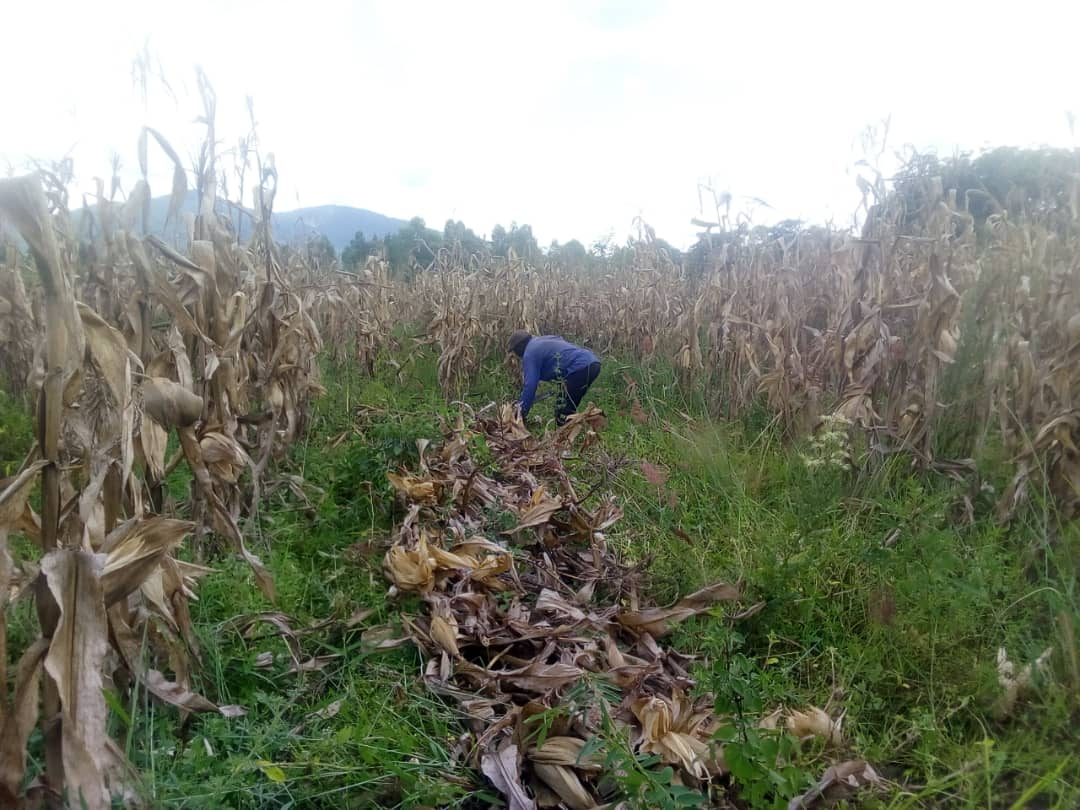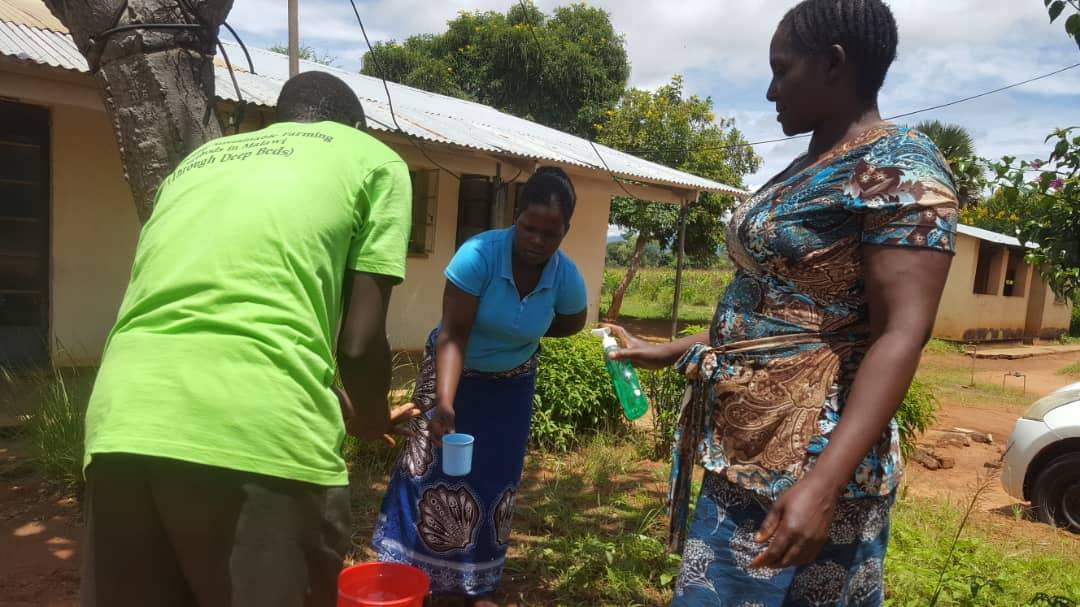The well-being of the nation
17 June 2020
John Crossley, Trustee, reflects on the twin dangers of hunger and the Covid-19 virus
As harvest time for maize, the crop which sustains the people, approaches, Tiyeni staff have been touring the fields. Beans will have already been harvested, and peas and sweet potatoes planted as the rains tail off. While some cobs of maize will already have been picked and boiled or roasted for immediate consumption, the main crop for milling will be gathered in May or June. The wellbeing of the nation depends on this crop.
Once more the performance of crops planted on deep beds has been outstanding. Typical is smallholder farmer Chrissie Chisi, (pictured above), of the Chimbongondo section. She stands in the furrow between two beds (never treading on the loosened soil of the beds themselves) as she enquires, “Where was this technology (method) all those years when our lives were ruined by hunger?” Numerous farmers using the deep bed method wave asked the same thing. Learning and then adopting the method of farming has changed their lives.
Not only is the grain that this abundant crop will yield of value; the copious biomass produced by the maize plants contains carbon derived from the atmosphere and all this will be used as mulch or as compost and incorporated in the soil thus removing CO2 from the atmosphere and putting carbon underground where it is needed for plant growth. If this method were used more widely, a substantial step towards controlling climate change would result.

Mulching with maize plants
Things have moved on dramatically since that picture of the smallholder farmer (Chrissie) was taken. The Malawi Government has announced a lockdown and stay-at-home policy to contain the spread of the virus. However, this has not gone down well with the public. Tiyeni staff are working from home and have been sent a substantial sum of money to buy masks, gloves and other protective equipment. But market traders and other sections of the urban populace have been protesting vigorously against the restrictions, pointing out that, living as they do from hand-to-mouth, they would rather die by the virus than by hunger.
So hunger remains the ever-present anxiety. That harvest will certainly be gathered in.

Handwashing practices in April